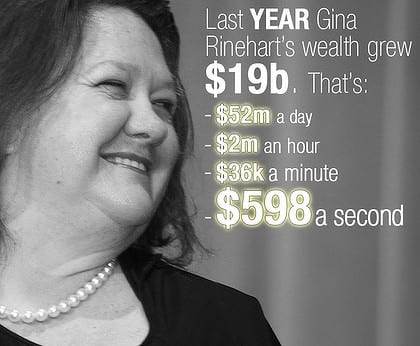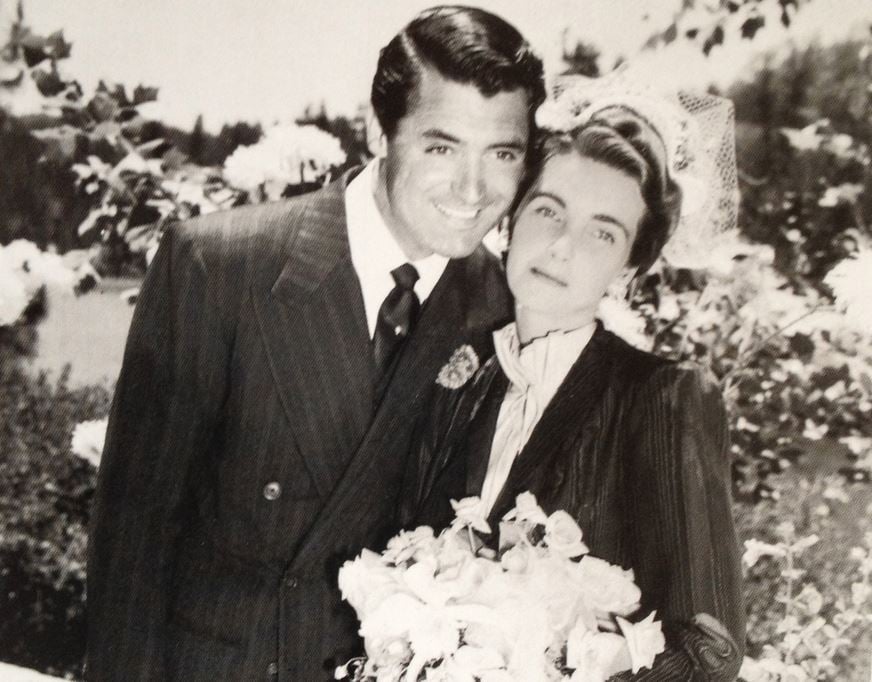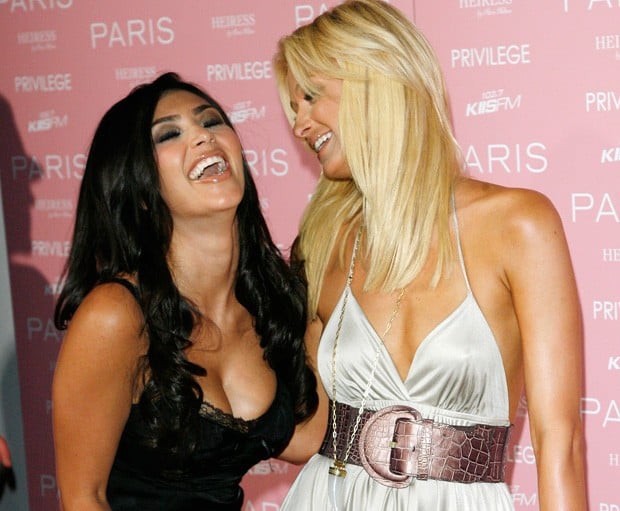When entertainment tycoons like schmaltz queen Oprah Winfrey or capitalism evangelist Russell Simmons enter the picture you know the result will be a travesty of truth or worse.
Whitewashing the imperial status quo via personal success stories
••••
Lee Daniels’ The Butler: Identity politics at odds with history
By Joanne Laurier, wsws.org
23 August 2013
Directed by Lee Daniels; screenplay by Danny Strong, based on the article by Wil Haygood
Lee Daniels’ The Butler is a fiction film based on the life of Eugene Allen, an African American who worked in the White House for 34 years, from the tail end of President Harry Truman’s administration to Ronald Reagan’s second term in office.
With a screenplay from Danny Strong (HBO’s Game Change) that was inspired by a 2008 Wil Haygood article in the Washington Post (“A Butler Well Served by This Election”), Daniels (Precious, 2009) has crafted his movie to encompass the period from the mid-1920s to the election of Barack Obama in 2008. This potentially fascinating story of an encounter between a black worker and the upper echelons of the American political elite is fatally marred, however, by Daniel’s shallow, identity politics outlook.
On a cotton farm in Georgia in 1926, a young Cecil Gaines [the fictional stand-in for Eugene Allen] witnesses his mother (Mariah Carey) raped and his father (David Banner) shot by the landowner (Alex Pettyfer). Out of pity and a sense of guilt, the farm family’s matriarch (Vanessa Redgrave) makes Cecil a houseboy, where he learns skills that will eventually land him a job at an elite hotel in Washington, DC.
The Butler
A White House staff member eventually hears about Cecil (Forest Whitaker) and offers him a position as a butler. Cecil is now able to provide a comfortable lifestyle for wife Gloria (Oprah Winfrey) and sons Louis (David Oyelowo) and Charlie (Elijah Kelley).
Cecil, who maintains a low profile and avoids airing any controversial views, becomes a historical witness to the Little Rock school desegregation crisis under Dwight Eisenhower (Robin Williams); the assassination of John Kennedy (James Marsden); the escalation of the Vietnam war under Lyndon Johnson (Liev Schreiber); the political disgrace of Richard Nixon (John Cusack) in the Watergate Scandal; and the support extended by the Ronald Reagan (Alan Rickman) administration to the continuation of the apartheid system in South Africa.
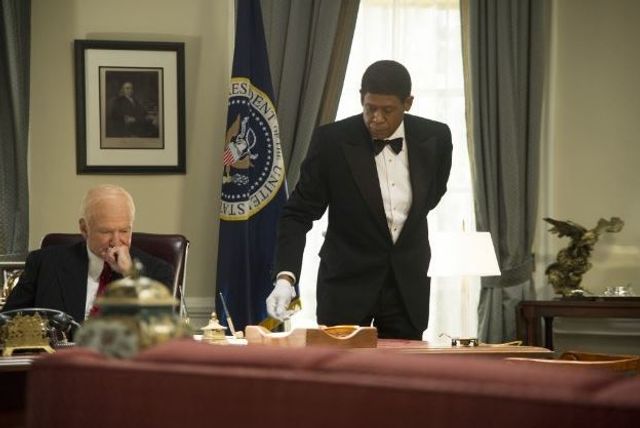
The Butler
Meanwhile, on several occasions, during the transition from one administration to the next, Cecil approaches his supervisor to request that the black staff be paid wages in line with their white colleagues.
At home, tensions grow between Cecil, loyal to US government policy, and his son Louis, who views his father as an “Uncle Tom” and leaves college to become active in the civil rights movement. Cecil grows increasingly dismayed and angry as Louis participates in the campaign to desegregate Woolworth’s lunch counters through sit-ins, becomes a Freedom Rider and has a brief stint in the Black Panther movement, enduring numerous incarcerations and beatings.
[pullquote] “Lee Daniels’ The Butler is a train wreck of a film which leaves a bad taste for anyone even dimly aware of the basic facts of American history.”—Margaret Kimberley[/pullquote]
In the aftermath of the assassination of Martin Luther King Jr., Louis runs for office as a Democrat (“Dr. King’s philosophy got him killed … the next step is politics.”). Meanwhile, Cecil’s younger son Charlie joins the military in support of the Vietnam War. Cecil and Louis ultimately reconcile after the former resigns from his White House position and both participate in the fight to free Nelson Mandela.
The high point of Cecil’s life—and, according to Daniels’ film, the civil rights movement—is the election of the first African American president in 2008.
In tackling The Butler’s numerous false premises and artistic flaws, it is worth taking a brief look at the film’s departures from the facts of Eugene Allen’s life. First, Allen did not grow up on a brutal farm in Georgia, whose owner committed unspeakable acts, but in a segregated town in central Virginia. He worked as a waiter in whites-only resorts and country clubs. In the Haygood article, Allen says, “We never had anything. I was always hoping things would get better.”
That is not to say that such things as Daniels depicts in the opening sequence did not happen, but here they serve to set a certain tone and reveal a definite social agenda. Racism and Jim Crow in the South are not seen as functions of class rule in America, which had as their central purpose keeping the black and white poor divided in order to better exploit both, but as a series of violent atrocities committed by maddened racists. They also indicate a Tarantino-like willingness to sensationalize and fantasize for the purpose of “making a point.”
More liberties are taken to pump up the action. Allen’s wife Helene never became an alcoholic or cuckolded her husband like the Winfrey character. In addition, Eugene and Helene had only one son, Charles, who was never a Freedom Rider or Black Panther. He did go to Vietnam, but survived (unlike his cinematic counterpart) and went on to work for the US State Department.
The scenes in The Butler that have the air of the greatest historical and social truth involve the activities of the black White House staff. The filmmakers carefully depict how these workers perform their duties, in the course of which they reveal their frustration with their demeaning conditions. (When Eugene Allen started at the White House, he was a “pantry man” washing dishes and polishing silverware. The job paid $2,400 a year [$20,800 in 2013 dollars], compared to the national average wage of $3,400.)
The big historical events fare far worse. The movie races through the evolution of the civil rights movement, a vast social experience, only touching superficially on certain well-known events, as if its major preoccupation is hurtling us toward the 2008 presidential election. Almost nothing is made of the enormous August 1963 march on Washington—the largest integrated demonstration that had ever taken place in the nation’s capital. Fragments of footage of the actual events are haphazardly thrown in to provide a veneer of credibility. This approach reaches a low point when the assassination of King in April 1968 is primarily treated through a video of Jesse Jackson, the opportunist and Democratic Party operative, speaking about the killing.
While Daniels directs individually moving scenes in The Butler, he fails as a whole to create an integral, coherent or convincing drama. But how could he, starting with such false premises? The effort to present the Allen-Gaines story, and its related elements, as some sort of entirely unique “black experience” was bound to end badly. It inevitably requires the filmmakers to distort social and personal relations to fit their schema.
In the world of Daniels and his ilk, the immense sacrifices made and blood spilled in the civil rights struggle, by blacks and whites alike, find their central meaning and value in the eventual elevation of an African American stratum to wealth and fame, reaching its summit in the gigantic figure of … Barack Obama, who currently presides over the most reactionary, anti-democratic administration in American history.
How would it be possible for Daniels, even with the best of intentions, to do justice to the life of the oppressed when, at the same time, he finds cause for celebration in the career of one of the chief oppressors? The artistic outcome must be half-hearted and murky.
The movie has a brief scene in which Nixon calls for the promotion of “black capitalism.” Do the filmmakers grasp the significance of this development? The scene is not followed through on. The great difficulty here is a terribly limited understanding of history and an equally limited perspective.
The emergence of conservative, self-absorbed petty bourgeois constituencies, among blacks, women, gays and other minorities is a major event of the last several decades. In 2011, a WSWS article on King aptly described this process: “The co-opting of a section of the black middle class was itself part of a broader development. … The goal was to cultivate a new ‘left’ constituency for American imperialism.
“Obama is the apotheosis of this process: a right-wing, militarist, pro-Wall Street African-American president. His elevation to the presidency is not the legacy of decades of civil rights progress, but rather an effort by wealthy corporate interests within the Democratic Party to use the candidate’s skin color to disguise their reactionary policies.
“[Martin Luther] King was assassinated at the height of his public career, at the point where he was beginning to draw radical conclusions about the necessity to link the struggles of blacks in the South with those of the working class throughout the country, and to connect the fight for social justice at home with opposition to imperialist war abroad.” [He spoke out forcefully against the Vietnam War.]
The night before his assassination, King told a group of striking sanitation workers in Memphis, Tennessee: “We’ve got to give ourselves to this struggle until the end. Nothing would be more tragic than to stop at this point in Memphis. We’ve got to see it through.” This spirit of struggle is entirely absent from The Butler .
It’s almost embarrassing to point out that the basic framework of The Butler is conformist respect for the various right-wing residents of the White House. There is sympathy for Nixon’s downfall and, after all, Reagan was a good sort—didn’t Nancy Reagan (Jane Fonda) invite Cecil and Gloria to a state dinner as guests, not servants?
In a recent interview with the New York Times, Daniels says: “Initially, the script had Obama in it, but I thought that would have been overkill. And we didn’t even know whether we could get him. He was doing a campaign, and if they heard he was doing a movie in the middle of the campaign—God knows. I was tempted to call Oprah to call the president, but I couldn’t bring myself to ask her.” Thank heavens for small mercies!
••••••
Freedom Rider: Sex Tapes and Butlers
By BAR editor and senior columnist Margaret Kimberley
Racist propaganda comes in many forms, and from many sources. Russell Simmons and Lee Daniels are well-paid Black purveyors of the anti-Black propaganda arts. Daniel’s turns history and truth on its head in The Butler, while Russell Simmons depicts Harriet Tubman as a whore who turns tricks for freedom.
“The fact that Simmons chose to make Harriet Tubman a character in a porno reveals much about him, his feelings about black people and his high regard of white people.”
On August 14, 2013, Russell Simmons posted these words on twitter: “Funniest thing I’ve ever seen Harriet tubmans [sic] sex diary.” Those are words guaranteed to catch one’s attention, the way a bomb going off gets attention. Simmons wasn’t lying or joking either. His latest entertainment venture, All Def Digital, had in fact produced something he called The Harriet Tubman Sex Tape. For the worst and most despicable reasons possible, Mr. Simmons chose to commit a character assassination of Harriet Tubman, one of the greatest in the pantheon of black American heroes. By extension he defamed not only Tubman, but all black people and perpetrated the worst slanders used against black women. The fact that Simmons chose to make Harriet Tubman a character in a porno reveals much about him, his feelings about black people and his high regard of white people.
One might conclude that Simmons is nothing more than clueless and ignorant of the history of this country and of his people. Yet his treachery shows something far worse than obvious misogyny, self-hatred and stupidity. This so-called parody existed because Simmons determined that the path to success must go straight through the heart of our heritage and bring down a woman whose actions were above reproach. Simmons obviously believes that his success depends on black people being demeaned and willing to laugh about it.
Simmons claims that he wanted to show Tubman “turning the tables” on the slave master. The vulgar and stupid impresario, entrepreneur, mogul doesn’t even know why Harriet Tubman is so revered. By first stealing herself away from the chattel slavery system and then taking hundreds of other people from their slave owners, she turned the tables quite adroitly, all without having sex with anyone. She followed up her individual feats of bravery when she led a Union attack on Confederate forces near the Combahee River in South Carolina in 1863, the only woman to have led an army into battle in the Civil War.
“Simmons obviously believes that his success depends on black people being demeaned and willing to laugh about it.“
In Simmons’ turgid imagination, the woman who John Brown referred to as “General Tubman” becomes nothing more than a whore. An enslaved woman had no means by which she might empower herself. She had no control over her body and thus no control over her sexuality. She could be forced to have sex with any white man or even with a black man when slave holders wanted to create more babies and thus more profit. For Harriet Tubman to have overcome these circumstances with her bravery and genius, only to be depicted as a woman who enjoys having sex with her slave holder is the worst thing that any black person might do to her memory.
Black people should have had nothing worse than Russell Simmons to contend with, but he chose to do his dirty work in the same week that another awful depiction was unleashed by Hollywood. Lee Daniels’ The Butler is a train wreck of a film which leaves a bad taste for anyone even dimly aware of the basic facts of American history.
The Butler is a fictionalized account of the life of Eugene Allen, a man who served as a White House butler from the Harry Truman through Ronald Reagan administrations. This story could be interesting on many levels but in the hands of the ham fisted and black hating Daniels the civil rights movement is in the end just a useful backdrop for absolving white people of any guilt.
Daniels does know what makes for an engaging film and it is this skill that makes The Butler so insidious. He cleverly depicts how the lead character, named Cecil Gaines for the purposes of the movie, must escape from the cruelty of Jim Crow era South, where America’s apartheid took shape. Most of the black actors in the film are talented and popular audience favorites. The combination of seeing our experiences validated in an entertaining film guarantees box office success.
“Lee Daniels’ The Butler is a train wreck of a film which leaves a bad taste for anyone even dimly aware of the basic facts of American history.”
It is true to this very day that black people show two faces, or in the case of people like the Gaines character, only one face, not being allowed to be fully human when interacting with white people who have power over them. Having seen lynching and terror, Gaines is fearful for himself and for his son who chooses to be in the forefront of the black freedom movement.
What might have made for an intriguing dynamic is turned into a hodge podge of phony hopefulness about how the “good negro” inspires white people to do the right thing. Movies of course depend on some degree of dramatic license. But it is absurd in the extreme for the Gaines character to literally be serving breakfast to presidents and their top staff people as they discuss what to do in Little Rock, Selma or Birmingham.
Every president in the movie confesses his sins to the magical Cecil and then tries his best to help the Negro. In fact, however much or little any of these presidents did was dependent upon the intensity of the struggle among the masses of people and not by their liking of any domestic worker. Yet the Lee Daniels butler inspires Eisenhower to send troops to integrate Central High School in Little Rock. John F. Kennedy spent most of his term in office looking for ways to placate the Dixiecrats. He and his brother Robert were opposed to the March on Washington and any other actions that might force them to do the right thing. As for the Freedom Riders, Kennedy asked an aide, “Can’t you get your goddamned friends off those buses?” In the end he was forced by the demands made in the streets to finally give a speech in support of a civil rights bill.
The movie does tell some historic truth but with an underlying message that political action is acceptable only within very narrow parameters. The son in the film goes on a journey from the lunch counter sit-ins to the Freedom Rides to the Black Panthers. Daniels should have just left the Panthers alone instead of depicting them as disrespectful young people who never remove their black berets and give offense at the dinner table. But he couldn’t leave the Panthers alone. If white people can be appeased with the right attitude there is no need for radical politics to be taken seriously. The Black Panthers also have to be brought low in the popular consciousness of a Lee Daniels movie.
Not only are white people made good if the black people around them are silent enough, but the black people in Daniels world don’t amount to much. Their relaxation time is spent drinking and dancing and cheating on their spouses, while at work they tell dirty jokes in mixed company and get angry if a co-worker gets a perk. No wonder white people have to be coaxed into helping them.
“Daniels should have just left the Panthers alone instead of depicting them as disrespectful young people who never remove their black berets and give offense at the dinner table.”
They live happily ever after because Barack Obama is elected president of the United States at the movie’s end. All is well in Daniels land where eventually the right kind of protest brings white acceptance and a black face in the highest place.
Lee Daniels and Russell Simmons are also in high places. They get the deals to create images of black life because they can be replied upon to do the right thing by white people. Russell Simmons is a bottom feeder who didn’t even know how to be smooth with his slander. Lee Daniels is made of sterner stuff and knows what black people want to see. We want to see black people on screen who do great things even if it is just getting a raise for the domestic help or sneering at the struggles of young people when they try to change the system.
After being properly scolded for the sex tape horror, Simmons removed the sex tape from his site and now says he has plans to produce biographies of Harriet Tubman and Frederick Douglass. He probably has no real interest in doing this but for the sake of argument he must be treated as if he does. He can’t be trusted with our image ever again and must never be allowed to live down this shameful episode.
Daniels will probably get more movie deals and more opportunities to create outwardly uplifting fare that is in reality anything but. He is equally untrustworthy but more dangerous. He is after all the man who gave us Precious.
Black celebrities cannot be given a pass to treat us any way they want but the yearning for black success is still quite strong. As with politicians and other misleaders, they get consideration where none is deserved. Hopefully there will be no more black historical figures in sex tapes or white people being given phony and undue credit, at least not for a while. Two such episodes in one week is simply too much.
Margaret Kimberley’s Freedom Rider column appears weekly in BAR, and is widely reprinted elsewhere. She maintains a frequently updated blog as well as at http://freedomrider.blogspot.com. Ms. Kimberley lives in New York City, and can be reached via e-Mail at Margaret.Kimberley(at)BlackAgendaReport.com.

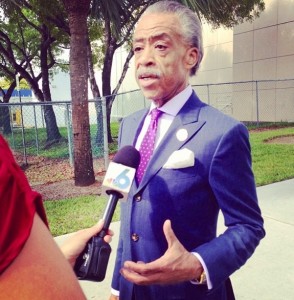
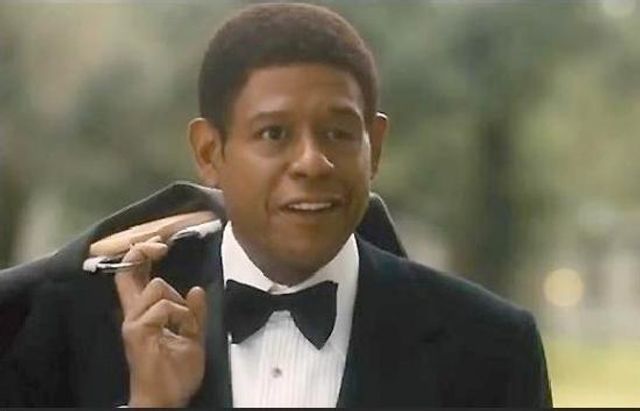
 The Butler
The Butler
